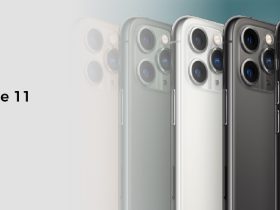If you’ve invested in a smart home, the chances are high that most of your devices work with one of the big four platforms: Amazon Alexa, Google Home, Apple HomeKit and Samsung SmartThings. However, the upcoming Matter standard could change that. It’s a new way of talking to IoT devices, designed to make them easier to use and secure. The major players in the smart home industry are already working to support it, so your existing devices could soon be compatible with any platform that supports Matter.
Which devices will be Matter-compatible?
Almost any device that can connect to your home network via Wi-Fi, Thread or Ethernet will be compatible with Matter. Some may require hardware changes, like swappable modules for Yale locks or the addition of Matter radios in Eve’s smart plugs. But many products will get the upgrade with an over-the-air firmware update. For example, Google’s Nest Wifi and Nest Hub Max have already been updated to include Matter compatibility, and the 4th-gen Amazon Echo and new Apple TV have built-in support.
In addition to improving interoperability, Matter also aims to make your smart home more reliable and secure. The communication between Matter-compatible devices uses low-power mesh technology and AES encryption. Your devices will connect to each other locally, rather than sending data to the cloud for processing and then back again, so they’ll be faster and more private.
Because Matter is based on the Internet of Things, it’s essential that your local network has fast speeds. That’s why most of the companies who support it are promoting high-performance routers and switches. They’re also building the tech into smart speakers, digital displays and smart home hubs. Those gadgets will be the brains of your Matter network, managing communications and automating routines.
Your smartphone will also become a Matter controller. The big four platforms—Amazon Alexa, Google Home, Apple HomeKit, and Samsung SmartThings—all support Matter, but you’ll also be able to control it with a third-party app like the TP-Link Tapo, Aqara or Wiser apps.
The other big thing to remember is that you’ll have to replace any device not compatible with Matter. For example, smart security cameras aren’t part of Matter, and that might be a deal-breaker for some homeowners.
Are there any other differences between the different protocols?
The main difference between Matter and other smart home standards is that it runs over Wi-Fi, ethernet or Thread. Wi-Fi is a popular choice, but Thread offers some advantages for battery-powered devices. It also works over long ranges, making it a good option for connecting your devices to each other in the same room. matter residences








Leave a Reply